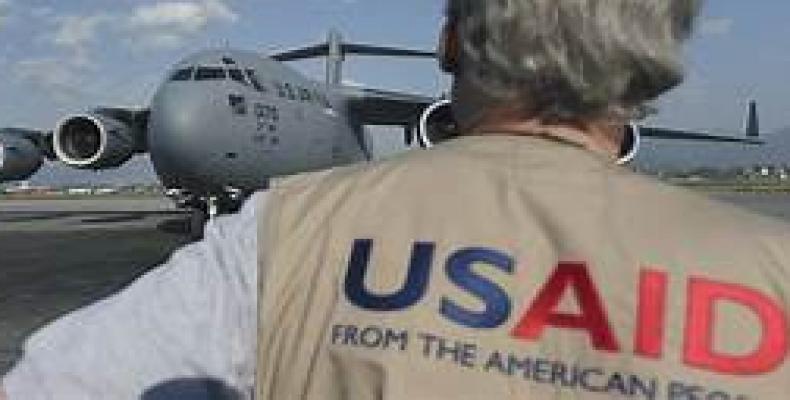Washington, January 9 (RHC)-- U.S. President Donald Trump has now removed restrictions on foreign aid to Bolivia and considers the Andean country "vital to the interests" of Washington.
According to international media, the decision was communicated in a memorandum sent to the Secretary of State Mike Pompeo, where Trump stressed the importance of assistance to that country in fiscal year 2020 and for the national interests of the United States. “I hereby resolve that the provision of U.S. Assistance to Bolivia in the fiscal year 2020 is vital to the national interests of the United States,” Trump said.
In 2017, the United States indicated that Bolivia and Venezuela were, together with Burma, the countries of the world where there was a "demonstrable failure" when implementing their international obligations in the fight against drugs.
The U.S. Government report on drug trafficking in the world, relative to 2016, contained the recommendations issued by former President Barack Obama, in which he appointed Bolivia, Venezuela and Burma as responsible for a failed drug policy in the previous 12 months.
That denomination could imply sanctions, but, in the case of Bolivia, Obama did not estimate that the United States had in its "national interest" to continue the aid, so Washington’s assistance to that country was limited to humanitarian and fight against drug trafficking, which was minimal.
Relations between the United States and Bolivia cooled during the almost 14 years of the administration of former president Evo Morales, who promoted a local anti-drug strategy to combat drug trafficking, which involved the expulsion of the United States Drug Enforcement Agency (DEA), which was accused of political espionage, financing of criminal groups and human rights violations in Bolivian territory.
Trump's administration supported the de-facto government in Bolivia headed by Jeanine Añez, after the coup and the forced resignation of President Evo Morales on Nov. 10, who received asylum in Mexico for weeks after seeking refuge in Argentina.
After Evo Morales resigned and Añez took over, the panorama of bilateral relations took a turn in the Andean country. The new head of Business of the U.S. embassy in Bolivia, Bruce Williamson, expressed Washington’s desire to "strengthen" relations with La Paz and considered that the eventual return to that nation of the DEA would depend on the de-facto government.
However, after this last announcement made by Trump's government and the geopolitical shift in international relations that the current de facto government has undertaken, this may be a possible path to the DEA’s return to Bolivia.


